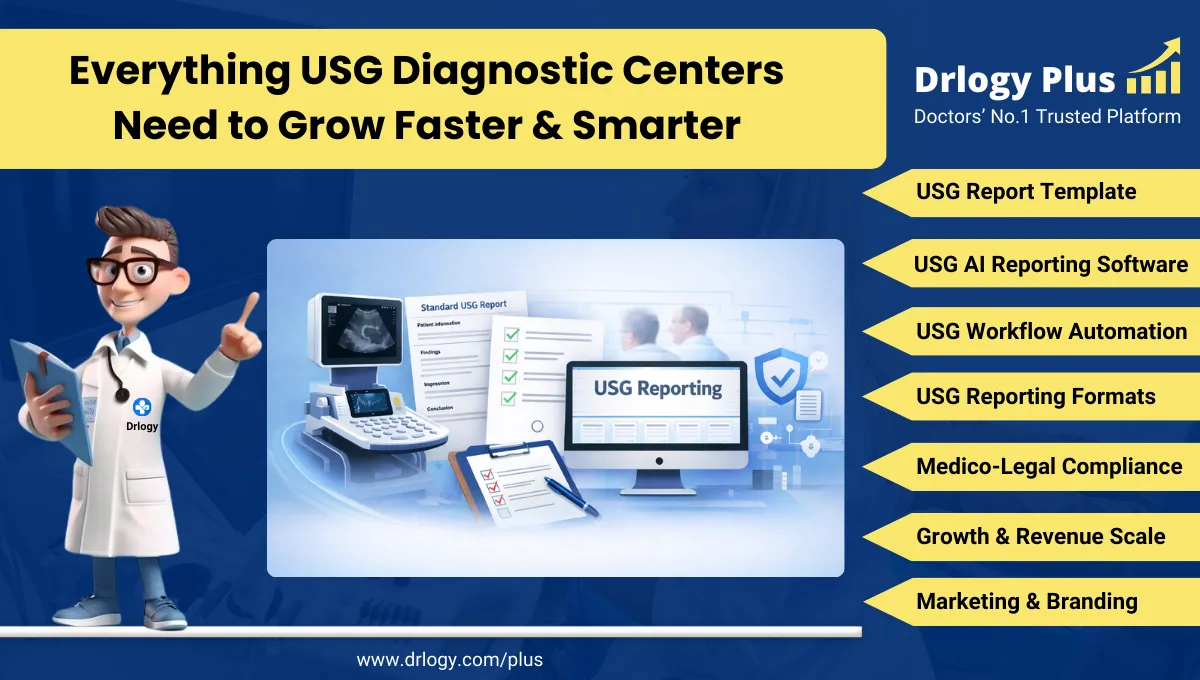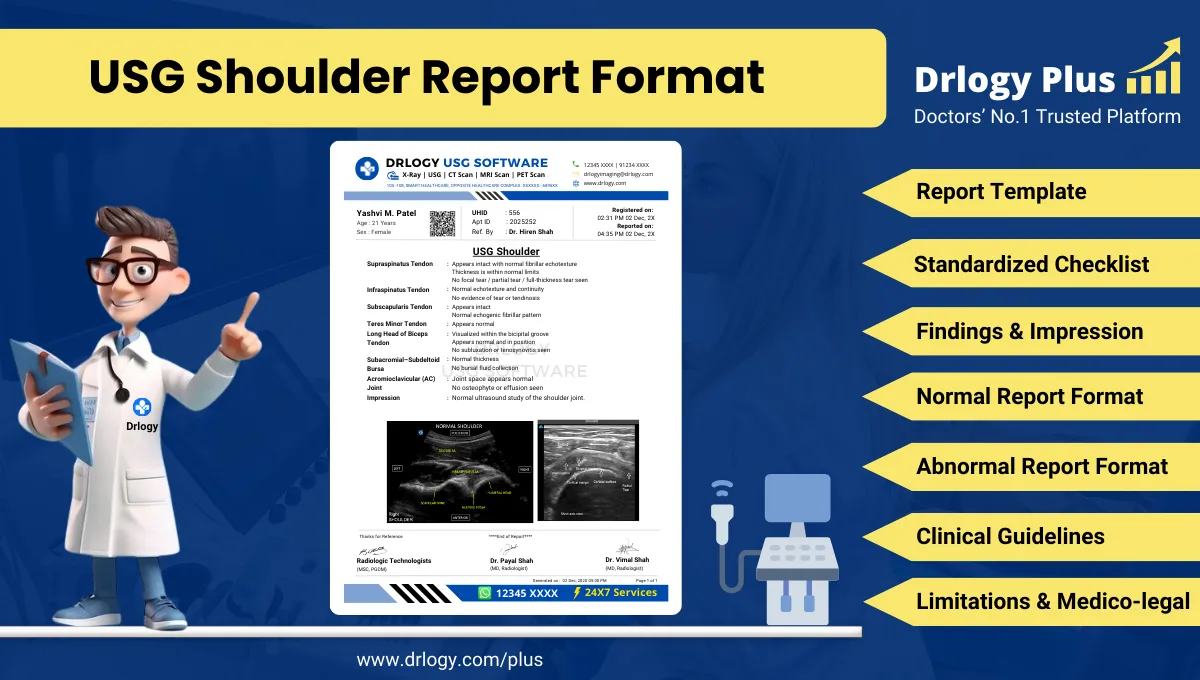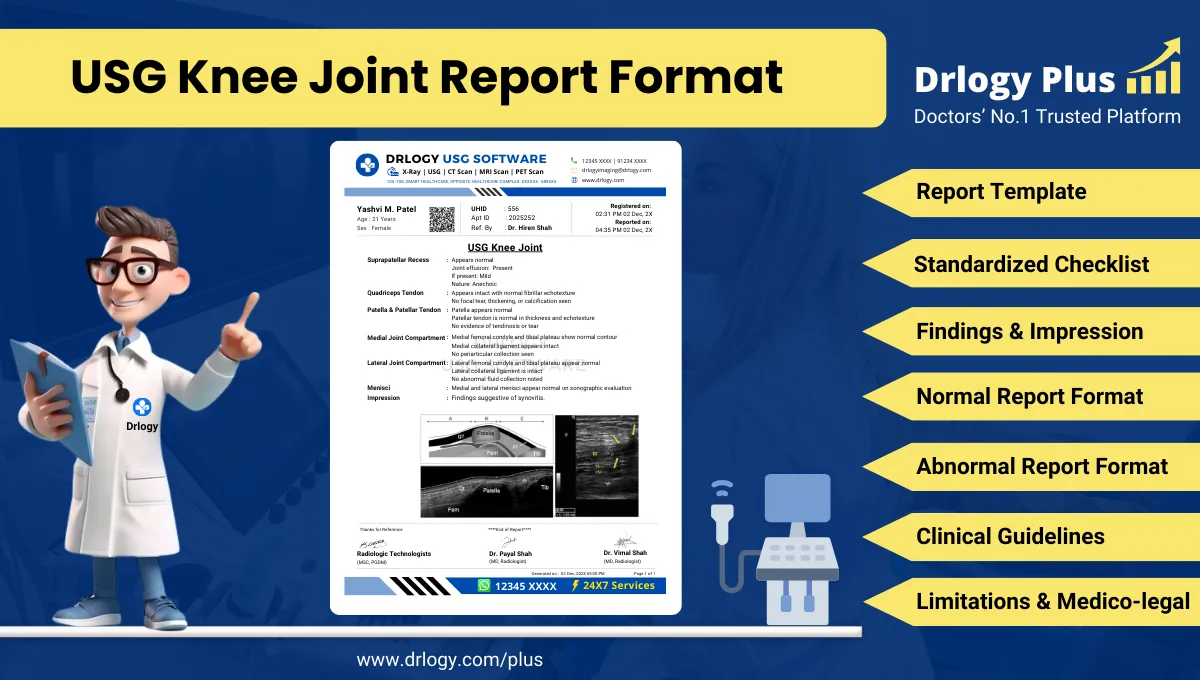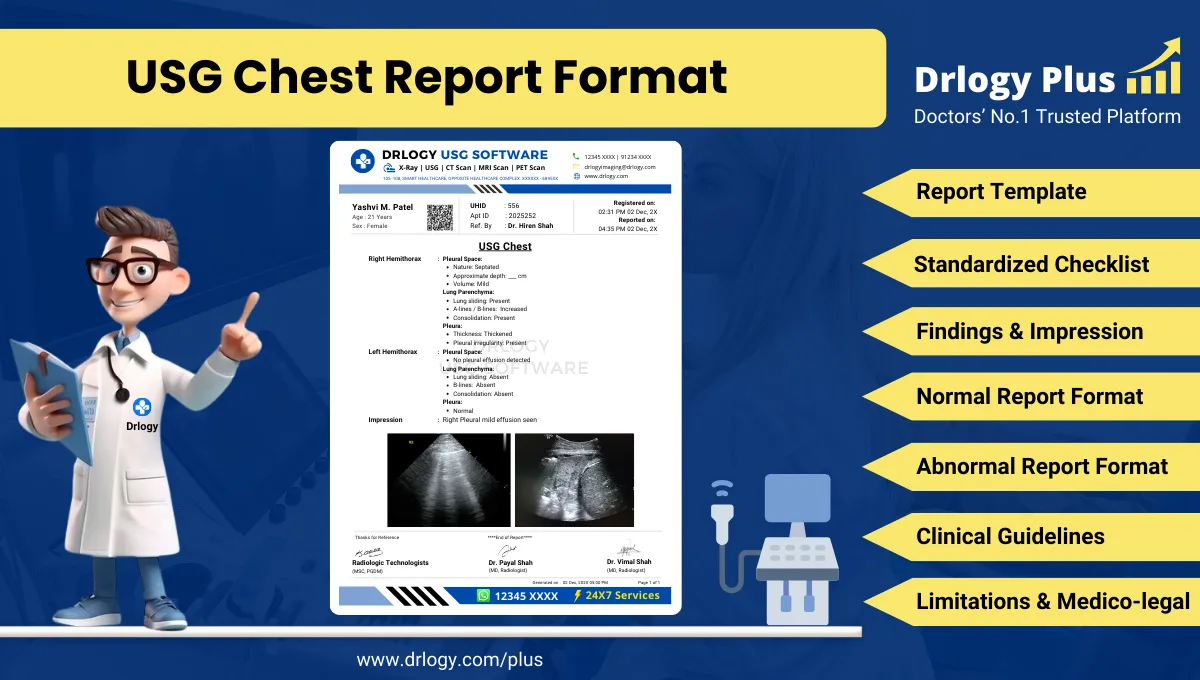

Drlogy
Healthcare organization
Cortisol Test Report Format: 10 Key Clinical Guidelines & Example
The cortisol test lab report is an essential document in the field of medical diagnostics, providing critical insights into adrenal gland function and hormonal balance. Test report highlights the test's in assessing adrenal disorders, Cushing's syndrome, Addison's disease, and stress-related conditions.
This introductory section sets the stage for the comprehensive analysis presented in the report, emphasizing the importance of cortisol measurement in aiding accurate diagnosis and effective management of various endocrine disorders.
10 Key Cortisol Test Report Format Clinical Guidelines
Below are the 10 key clinical guidelines for formatting a Cortisol Test report in your pathology laboratory.
1. Patient Information:
- Full name, age, gender, and contact details of the patient.
- Any relevant medical history or specific patient instructions.
- Verify patiententity through cross-checking details.
- Ensure compliance with privacy and data protection regulations.
- Use standardized forms for consistent and accurate recording.
2. Reference Doctor Information:
- Referring physician's full name, contact information, and specialty.
- Include the doctor's uniqueentifier or license number.
- Maintain a standardized reference doctor letterhead for professionalism.
- Establish a streamlined communication process with referring healthcare professionals.
- Periodically update and verify contact details for accuracy.
3. Specimen Information:
- Clearly label specimen containers with patient details.
- Indicate the type of specimen (blood, urine) and required volume.
- Provide specific collection instructions, including fasting requirements if any.
- Ensure proper sealing and preservation of specimens during transportation.
- Include information on the date and time of specimen collection.
4. Test Name Heading & Methodology:
- Use standardized headings for test names to avoid confusion.
- Clearly articulate the methodology employed for the cortisol test.
- Specify any variations in testing protocols for different circumstances.
- Ensure alignment with industry standards and guidelines.
- Highlight any special considerations or precautions during testing.
5. Test Result:
- Display cortisol test results prominently in the report.
- Include both numerical values and units of measurement.
- Clearly differentiate between normal and abnormal results.
- Highlight any specific trends or noteworthy observations.
- Utilize color-coded or visually distinct formatting for emphasis.
6. Normal Value Reference:
- Clearly define the reference range for normal cortisol levels.
- Provide units of measurement for easy interpretation.
- Include any age or gender-specific variations in the reference range.
- Highlight results falling outside the normal range.
- Emphasize the importance of clinical correlation for accurate interpretation.
7. Interpretation & Instrumentation:
- Offer guidelines for interpreting cortisol test results.
- Include information on the specific instrumentation used.
- Specify any limitations or considerations in the interpretation process.
- Provide references to relevant scientific literature for further reading.
- Encourage consultation with a healthcare professional for comprehensive understanding.
8. Signature and Date:
- Include the authorized signature of the responsible healthcare professional.
- Clearly indicate the date when the report was issued.
- Verify the credentials of the signing individual for accountability.
- Ensure compliance with regulatory requirements for result validation.
- Facilitate traceability and auditing of the reporting process.
9. QR Code Authenticity and Barcode:
- Implement QR codes for easy and secure result authenticity verification.
- Utilize barcodes for efficient tracking and management of specimens.
- Include instructions on how to use QR codes for result validation.
- Ensure that barcodes adhere to industry standards for compatibility.
- Enhance data security by regularly updating and validating code systems.
10. Diagnostic Laboratory Details:
- Display the diagnostic laboratory's full name, address, and contact information.
- Include accreditation details, certifications, and license numbers.
- Highlight the laboratory's commitment to quality and compliance.
- Specify any affiliations with professional organizations or regulatory bodies.
- Facilitate easy communication and collaboration with healthcare partners.
Also Check
Drlogy Plus For Complete Digital Solutions for Doctors, Clinics, Hospitals & Labs to Enhance Patient Experience
Cortisol Test Report Format Sample
Cortisol Test Report Format
Here is a Cortisol test report PDF format, highlighting its significance in the pathology laboratory.
Drlogy Pathology lab software plays a pivotal in ensuring a Cortisol Test Report Format. Additionally, Pathology lab software automates many aspects of the testing process, from sample handling to data analysis. Drlogy Pathology Software provides healthcare providers with real-time access to Cortisol test results, enabling timely decision-making and faster patient care.
Referred
Conclusion
- Overall, the cortisol test plays a pivotal in evaluating adrenal function and diagnosing various endocrine disorders. This test is indispensable for healthcare professionals.
- These guidelines for report format ensures the test's reliability, supporting informed medical decisions and optimal patient care.
- Drlogy Plus For Complete Digital Solutions for Doctors, Clinics, Hospitals & Labs to Enhance Patient Experience.
Reference





